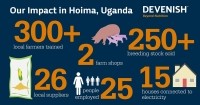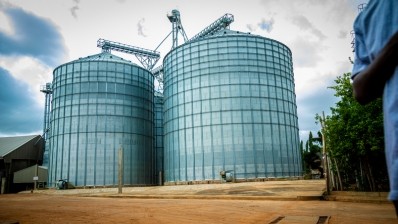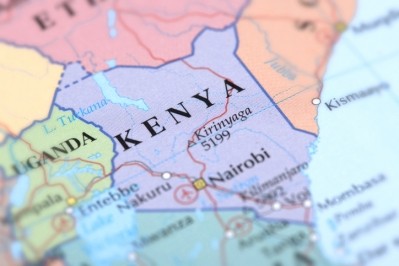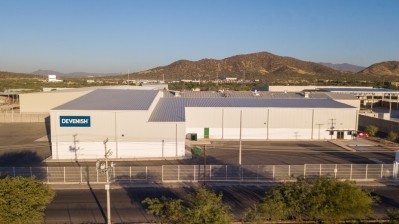Emerging market strategy: Devenish looks to ensure efficient utilization of nutrients in the production of meat, milk and eggs
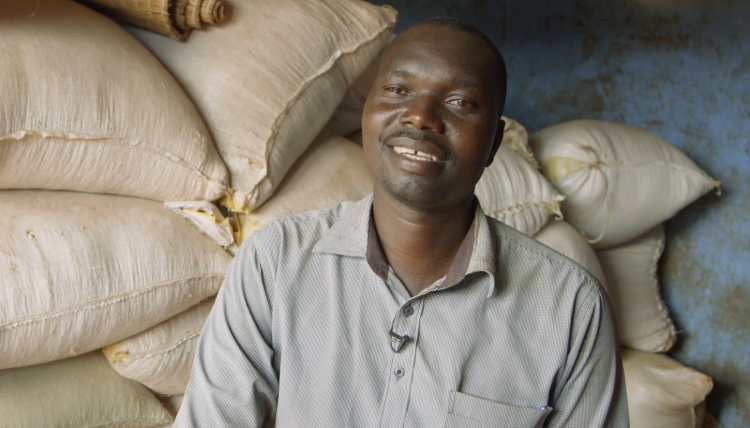
FeedNavigator spoke with Richard Kennedy, Devenish Group CEO, to discuss the Belfast company’s emerging markets strategy, and its broader work in Africa.
The Northern Ireland headquartered company has invested over £1m (US$1.2m) developing its business in the region. The Ugandan project, which was supported by the Africa Agri-Development Fund and Ireland’s Department of Agriculture, Foreign Affairs and Trade, aims to improve the livelihoods of farmers by helping them to transition from subsistence level farming to sustainable, commercial farming.
As well as setting up a model pig farm, Devenish has also established a specialized feed mill in Hoima in Uganda. It now employs 25 people in the region.
Distribution business in Kenya
April this year also saw the company invest US$2.25m in Sidai Africa Ltd, a distribution business that aims to revolutionize the provision of crop and livestock services to pastoralists and farmers in rural Kenya.
Sidai runs a network of centers, often based in remote hard-to-reach areas, providing livestock and veterinary services such as vaccines and artificial insemination, as well as products like minerals and vitamins and some feed and other farm inputs.
“Sidai for us is another step, [after our Ugandan project]. It is a business that has evolved out of an NGO – Farm Africa. It is now standing on its own two feet, and we are interested and keen to help drive it on, and progress it.
“Payment connectivity in Africa has taken huge leaps. Many people have phones, so we can provide information on phones about those products, get them distributed, and ensure they are applicable to the market,” said Kennedy.
In Africa, 25% of livestock die each year because of preventable diseases, according to data from Farm Africa. By improving access to livestock products and services, the Devenish Group CEO said Sidai can help livestock keepers keep their herds healthy, which in turn increases incomes and households’ financial security.

The goal of the Northern Irish company's strategy in Africa and in other regions such as Turkey and Mexico is to help farmers improve their production in a sustainable way, but also for the company to have a positive impact on the wider community.
“Simply by improving growth in pigs, producing more from less, you can have an impact on people’s lives, on their ability to educate their children,” continued Kennedy.
But he wants that impact to be more widespread: “I would like to be doing this on an even bigger scale.”
“We are nutritionists in Devenish. That is what we do. We direct and deploy nutrients, but we go beyond nutrition as well. Health, welfare, education and knowledge are also important, and that [is an approach we are championing] in emerging markets.
“Across such markets, what we are very anxious to do, is to ensure the most effective and efficient utilization of nutrients in the production of meat, milk and eggs.”
Doubling pig weight
Supporting farmers in countries like Uganda and Kenya is about giving them access to and the ability to acquire feed that is consistent, said Kennedy.
“When you finish off an animal, when it is ready for processing, you want to have that animal at the right target weight.
“Some of the farmers we work with in Uganda have told us, that, previously their pigs, at six months of age, would have been 45kg, but now, through using our program, being involved with the training and the vaccination systems, and applying the right and consistent feed, their pigs are coming in at 90kg at the same age.
“The difference they are going to get in terms of revenue now [because of that doubling in weight] means they are set up for the next time, in terms of buying the right feed, and paying for the vaccines.”
Consistency in ingredients and nutrients both in terms of availability and quality is vital, he stressed. Devenish encourages the use of local raw materials, but it brings its premixes from Belfast to Uganda.
Supporting local farmers in Africa is about encouraging them to focus on what the animal needs, making sure the diets, the nutrients are applicable to the growth stage of the animal, he added.
Education on animal health is also critical, as is ensuring that there is access to and understanding about the use of vaccines. And vaccines need to be customized so they are applicable to the herd size at the small-holder scale of farming, said Kennedy.
There is room for several kind of farming models, at different scales, in Africa. “There is, however, a history of pastoral farming, of small-holdings there. There is a lot of that throughout the developing world. The difficulty is if we don’t provide sustainable livelihoods for people and families then they are going to move to the cities, move to Europe or move elsewhere - people need to live and survive. It is important that they get the training, the education, and the opportunity, and then they can make of it what they can.”
Commercial value
There is commercial value in such development work, said Kennedy. He said it is about having social impact while delivering returns for all those involved.
“There is a lot of potential. We see huge opportunities in this. The key here is a shared commercial vision, with a shared commercial outcome, and that will give authenticity and transparency to the supply chain.”
Collaboration within that concept is vitally important, said Kennedy.
The company has customers in many other countries in Sub-Saharan Africa including big markets like Nigeria. “We work with them, providing technical support as well as products.”
Devenish is looking to set up other partnerships in Africa: “We would also be interested in growing the business in Africa through acquisitions.”
